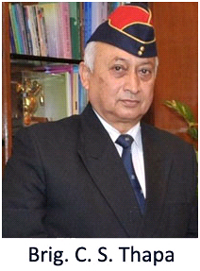 Binoy Tamang a member of the GJM after talks at Kolkata gave a call for the Darjeeling bandhs to be called off from 01 September. The party responded by taking necessary disciplinary action against him. On the other hand the people of Darjeeling, Kurseong, Kalimpong, Mirik, Bijanbari, Ghoom, Lava, Pedong, and Teesta and other areas continued to keep their establishments shut down voluntarily clearly indicating their stand on the issue of Gorkhaland.
Binoy Tamang a member of the GJM after talks at Kolkata gave a call for the Darjeeling bandhs to be called off from 01 September. The party responded by taking necessary disciplinary action against him. On the other hand the people of Darjeeling, Kurseong, Kalimpong, Mirik, Bijanbari, Ghoom, Lava, Pedong, and Teesta and other areas continued to keep their establishments shut down voluntarily clearly indicating their stand on the issue of Gorkhaland.
The drama in the hills is playing to high voltage as the people feel it’s now or never for the creation of a state. The next round of talks are due on 12 September at Kolkata.
There comes a time in every struggle when the chips are down and the struggle seems to be failing; it is at that time when the struggle needs to be kept going at any cost, because the road to success is paved with hardships. The key lies in being united; the struggle for Gorkhaland has entered that phase.
Initially there was some confusion but the people action remained true to the cause. Everyone realizes once the momentum is broken, the strike lifted the cause of Gorkhaland will be lost for the third time, in thirty years. Continuing the strike hurts all, the people the hardest, the state to a lesser extent, and the Centre the least. New Delhi is too far away to feel the pain.
On the other hand both the Centre and the state are passing the buck with the centre stating that the state needs to start the process, and the state stating that the issue of Gorkhaland is beyond its jurisdiction. Who is responsible for starving the population of the hills and Dooars, and who is responsible for the internet shut down for the last 78 days in the 21st democratic century; will the Delhi based press listen.
There is an economic blockage, vegetable prices have shot through the roof and unconfirmed reports on social media states quite a few people are on single meal a day, yet are ready to keep the strike going.
Unity amongst Gorkhas divided into various Samajas has been eroded and political unity has been below par for vested interests and lack of a charismatic leadership, who can overcome the various social formations and lead the community towards the cherished goal.
The Gorkhaland Movement Coordination Committee (GMCC) consists of an amalgam of thirty hill centric parties, the most prominent being Gorkha Jan Mukti Morcha (GJM) led by Bimal Gurung. Then there is Subash Ghising party called Gorkha National Liberation Front (GNLF), then Jan Andolan Party led by Harka Bahadur Chhetri, an off shoot of GJM, late Madan Tamang’s Gorkha League are some of the prominent Gorkha parties that all need to come together.
The problem is these parties are that they cannot get their act together and each is accusing the other of conniving with Writers Building at Kolkata. Bimal Gurung, the leader with the highest mandate is underground with various cases slapped against him, thus artificially creating a leadership vacuum. The current truce was started by Binoy Tamang and he may be suspended by the GJM. Thus the state government has managed to pit Gorkha against Gorkha.
The Gorkha civil society has many small centers but most prominent one is Bharatiya Gorkha Parisangh based at Siliguri, though started at Manipur, and now slowly making inroads into Delhi. Another civil society initiative now which is spearheading the movement at Delhi and has occupied centre stage is GSSS, colloquially called (G triple S), a congregation of Delhi based highly motivated youth, boys and girls, who have kept the flame going there and have also through social media linked up internationally.
The issue of Gorkhaland is about identity and those Gorkhas who are not Darjeeling based but live outside Darjeeling face the identity crisis the most. Confused with Nepali citizens, the state feels every Gorkha is a Nepali migrant. The Gorkhas feel alienated in the country of their birth. The cause of Gorkhaland therefore, reverberates both in the hills as well as nationally. The Gorkhaland movement is now truly a people’s movement. It is now at a critical stage; no wonder the BJP Member of Parliament SS Ahluwalia is opposing it.
The movement needs steady leadership as it is now truly people centric and what needs to be guarded against is violence, especially when leadership has been muzzled. Although the strike hurts the education of the children, as also the economics of the area, but the people will too needs to be respected. The heart of the problem is political identity, which brings social progress. The agitation in the hills must continue and talks should be held with political leaders requesting them to lift the economic blockade, internet ban as well as give the Gorkhas their due – the much cherished Gorkhaland.
(The writer is an Indian Army veteran who has authored books Gorkha: In Search Of Identity and Gorkha: Society and Politics)
